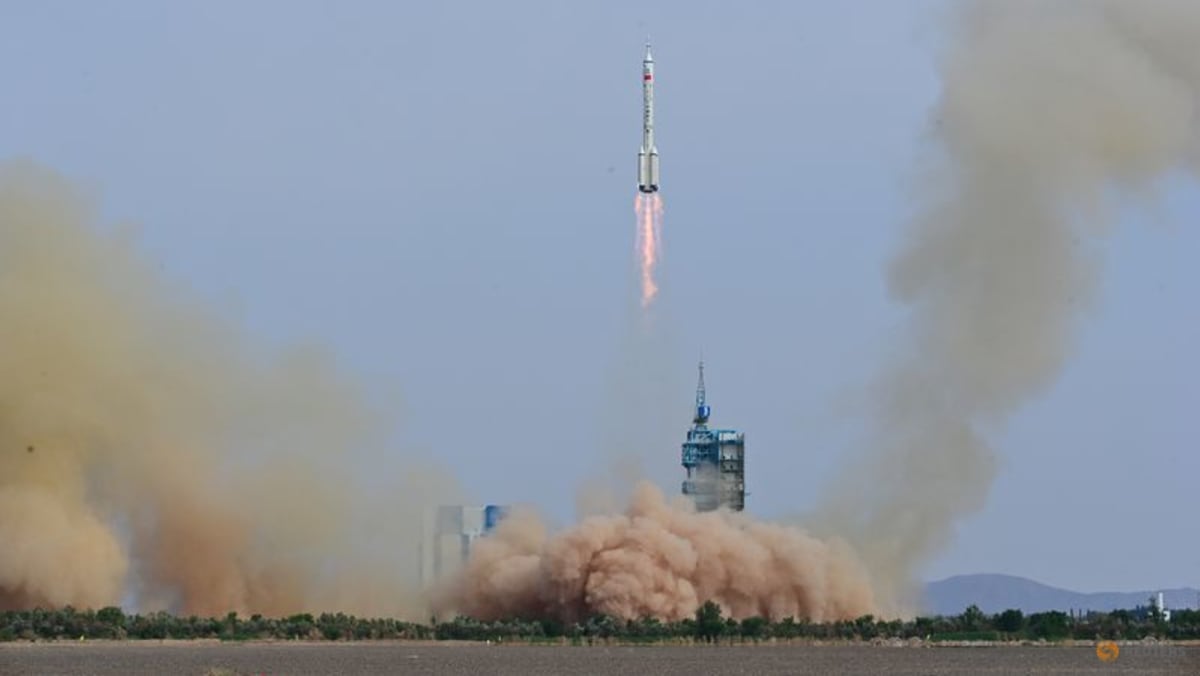China launches Shenzhou-16 mission with first civilian to Chinese space station

BEIJING: China on Tuesday (May 30) sent three astronauts, including a civilian scientist, to its now fully operational space station as part of crew rotation, according to state media, in the fifth manned mission to the Chinese space outpost since 2021.
Leading the crew is commander Jing Haipeng on his fourth mission, as well as engineer Zhu Yangzhu and Beihang University professor Gui Haichao, the first Chinese civilian in space.
The spacecraft, Shenzhou-16, or “Divine Vessel”, and its three passengers lifted off atop a Long March-2F rocket from the Jiuquan Satellite Launch Centre in the Gobi Desert in north-west China at 9.31am local time.
The astronauts on Shenzhou-16 will replace the three-member crew of the Shenzhou-15 that arrived at the space station late in November.
The mission will “carry out large-scale, in-orbit experiments … in the study of novel quantum phenomena, high-precision space time-frequency systems, the verification of general relativity, and the origin of life,” China Manned Space Agency (CMSA) spokesperson Lin Xiqiang told reporters on Monday.
The space station, comprising three modules, was completed at the end of last year after a total of 11 crewed and uncrewed missions since April 2021 initiated by the launch of the first and biggest module – the station’s main living quarters.
China has already announced plans to expand its permanently inhabited space outpost, with the next module slated to dock with the current T-shaped space station to create a cross-shaped structure.
Source: CNA















